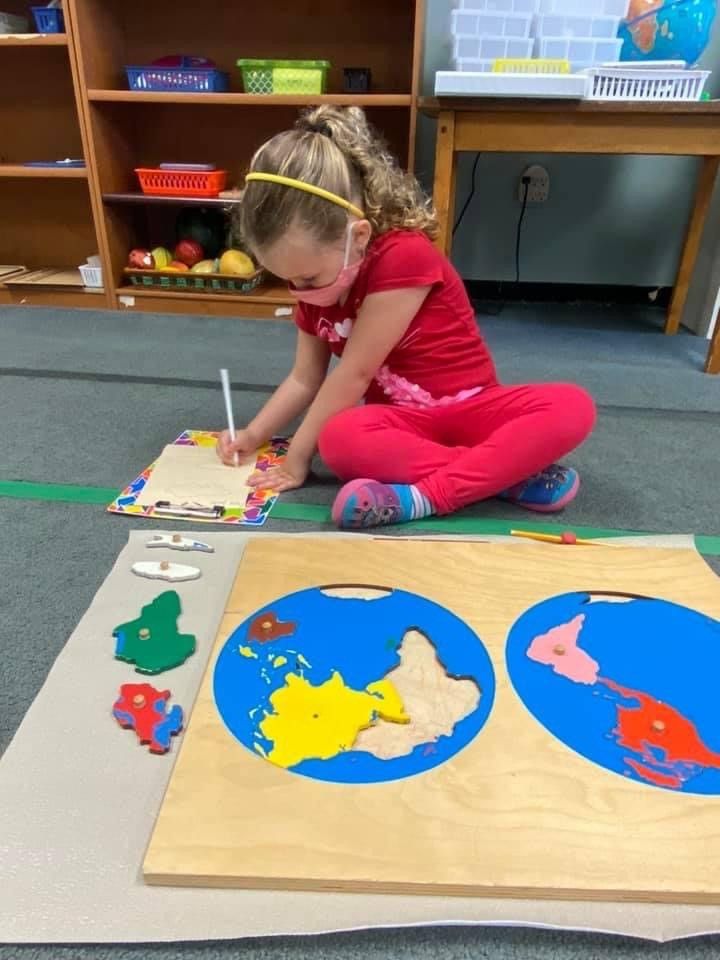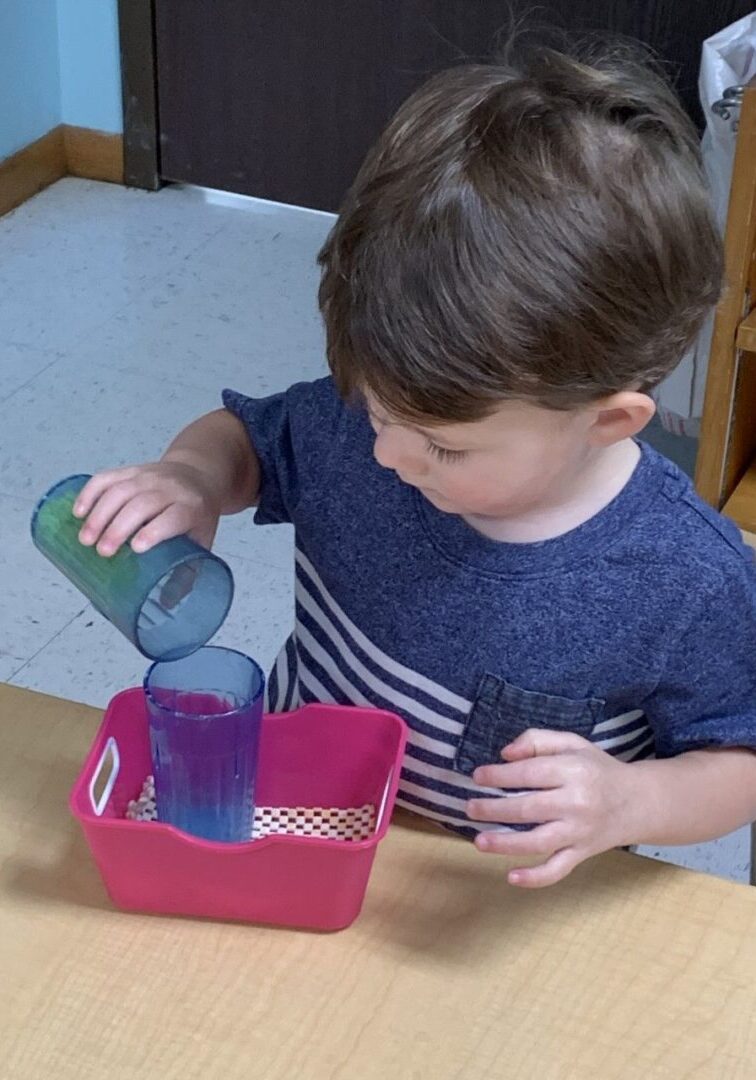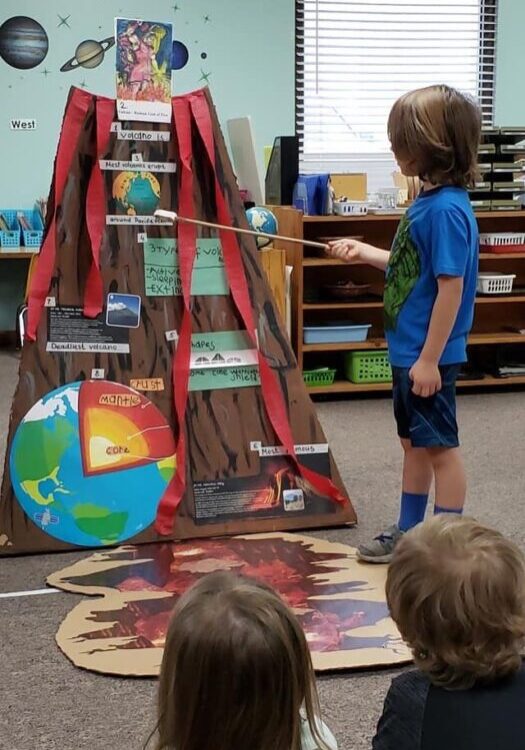The Academic Programming of Our School
The Montessori program offers children a chance to start learning about themselves and the world around them in a safe, nurturing, educational environment. The Montessori Academy is a school. Our primary goal is to give children the opportunity and the tools to discover the world for themselves—learning all the while.
Montessori Academy offers a welcoming, stimulating environment that cultivates your child’s independence, self-esteem, and social and academic potential, with an individualized curriculum that will lay the foundation for a lifelong love of learning.


Toddler Ages 2-3 years
The Toddler program is designed for children 18 months to 3 years of age. The children are offered a small, secure environment and given the time they need to develop inner discipline, learn to be actively independent, and improve coordination.
The Montessori Toddler program offers children a chance to start learning about themselves and the world around them in a safe, nurturing, educational environment. The Montessori Academy is a school. Our primary goal is to give children the opportunity and the tools to discover the world for themselves—learning all the while.
The classroom is divided into areas: sensorial, practical life, language, math and science. During the day, the children may choose the area in which they would like to work, and they ‘work’ within the area that interests them. Many of the ‘works’ are designed to be self-correcting; that is, a child can see for him/herself whether they have made a mistake or not. Of course, as the child progresses through the works, they become more challenging, and a teacher guides them to new discoveries.
Program Schedule
3 or 5 days per week
Half Day 8:30 – 11:30 am
Full Day 8:30 am – 3:00 pm
Program Curriculum
The children feel, hear, and smell the similarities and differences in our world using sandpaper, cloth, graduated-size puzzles, etc. This sets the brain up for later sorting, organization, and patience.
Preschool Ages 3-5 years
In a Montessori environment, there is no specific, formal curriculum to be followed each day. A session’s activities fall into one or many of the following areas, which form an integrated, open-ended curriculum, one which permits each individual child to learn at his own pace and maximize his interests in specific areas.
Program Schedule
3 or 5 days per week
Half Day 8:30 – 11:30 am
Full Day 8:30 am – 3:00 pm
Program Curriculum
For teaching language, we use sandpaper letters relative to sensorial experiences. A letter is traced with the fingers until the child retains its shape. He or she is then ready to use their hand and finger muscles to reproduce a letter, thus utilizing muscle control and coordination developed during the practical life and sensorial stages. Names of the various pieces of equipment in the classroom become a part of everyday speech. Vocabulary is enriched as the child works with exercises in identification and classification.
They are encouraged to converse with others in the classroom and take part in group discussions. Materials used for developing language skills are basically concrete, manipulative objects. Simple words are formed with a moveable alphabet. In conjunction with the moveable alphabet, the child uses objects, sounding out its name and selecting the appropriate letters. Once the child has mastered phonetics, he is well on his way into the abstract world of written and spoken language.
Kindergarten Ages 5-6 years
The third year, the kindergarten year, is an important year in the Montessori three-year cycle. It is a time when many of the earlier lessons come together and become a permanent part of the young child’s understanding. This is the year they become leaders in their classroom. They have an opportunity to teach the younger children lessons that they have learned. When a child can teach a lesson they have mastered, it benefits both the tutor and the tutee. It takes their mastery to a different, more concrete level.
Every year thousands of Montessori parents whose children are about to move up to kindergarten face a common dilemma. Do they allow their child to remain in a Montessori environment, or do they transfer their children to a more traditional kindergarten program?
Although there are plenty of issues that factor into this important decision, most Montessori administrators, educators, and parents will agree that perhaps the most compelling factor for most parents has to do with basic economics. Simply put, their child can attend a local public school kindergarten program for free.
Although each family must make this decision on their own, we offer several thoughts which should be considered before transferring a child in the kindergarten year.
Program Schedule
5 days per week
8:30 am – 3:00 pm

